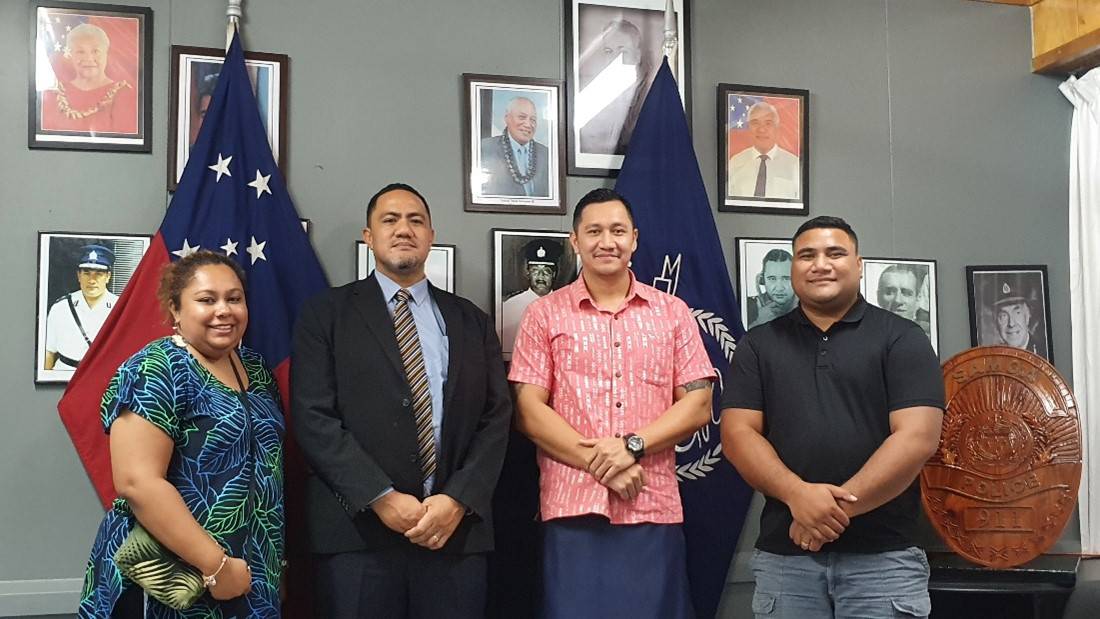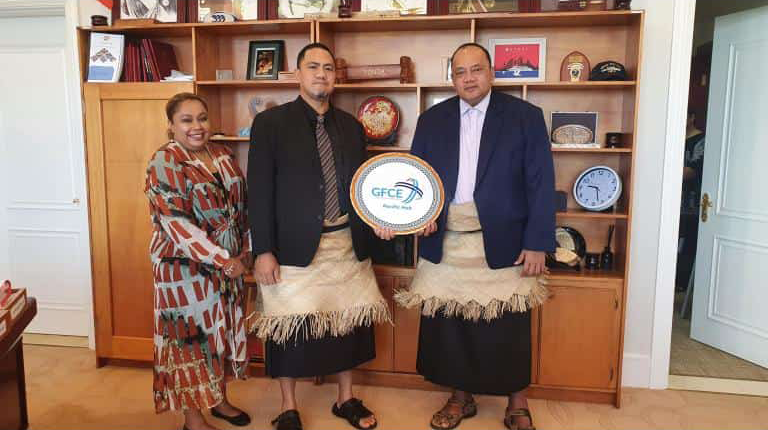GFCE Pacific Hub continues engagement efforts in Samoa

Written by: Cherie Lagakali, GFCE Pacific Cyber Senior Advisor Figure 1 Caption: (L-R) Fonoti Sakuma (SamCERT), Saia Vaipuna (GFCE Pacific Hub Director), Honorable Minister Toelupe Poumulinuku Onesome, Cherie Lagakali (GFCE Pacific Cyber Senior Advisor) The GFCE Pacific Hub team continues its community engagements and visiting of the different Pacific Island countries and this week are […]
The GFCE Pacific Hub team visits Tonga

The GFCE Pacific Hub team this week made a courtesy call to the Prime Minister of Tonga, Hon. Hu’akavameiliku as the Minister responsible for Digital Transformation and a champion of many cyber initiatives in the wider Pacific region. The GFCE Pacific Hub was represented by the Director, Mr. Siosaia Vaipuna who will be based In […]
The GFCE looks to the Pacific!
News Article | 27 October 2020 The GFCE has appointed Cherie Lagakali as the GFCE’s first Pacific Liaison. This role and appointment follows the GFCE’s first Pacific Regional Meeting, held in Melbourne in February 2020 and in the margins of the OCSC-GCSCC 2020 Global Cybersecurity Capacity Building Conference. The GFCE Pacific Regional Meeting provided an […]
GFCE Job Application: Pacific Liaison

News Item | 25 August 2020 The Global Forum on Cyber Expertise (GFCE) is looking to appoint a GFCE Pacific Liaison. This Liaison will look to scope, analyze, and recommend the design of a future GFCE Pacific Hub. The deadline for applications is 7 September 2020. Service Contract Remuneration The final fee for this service […]
